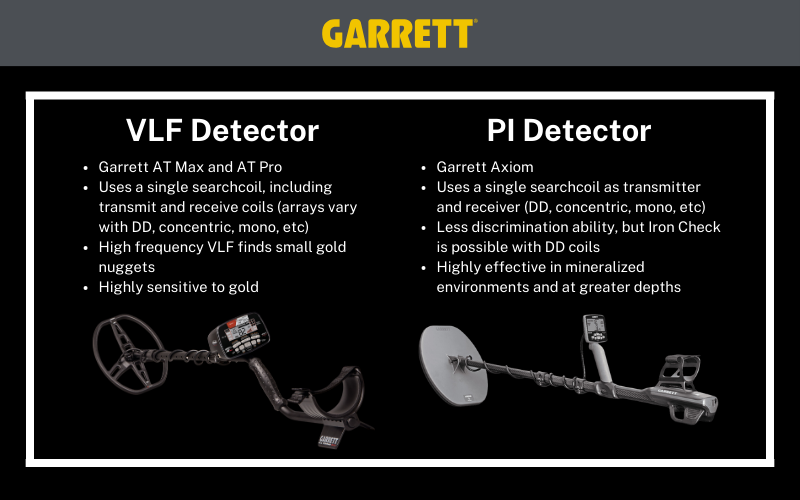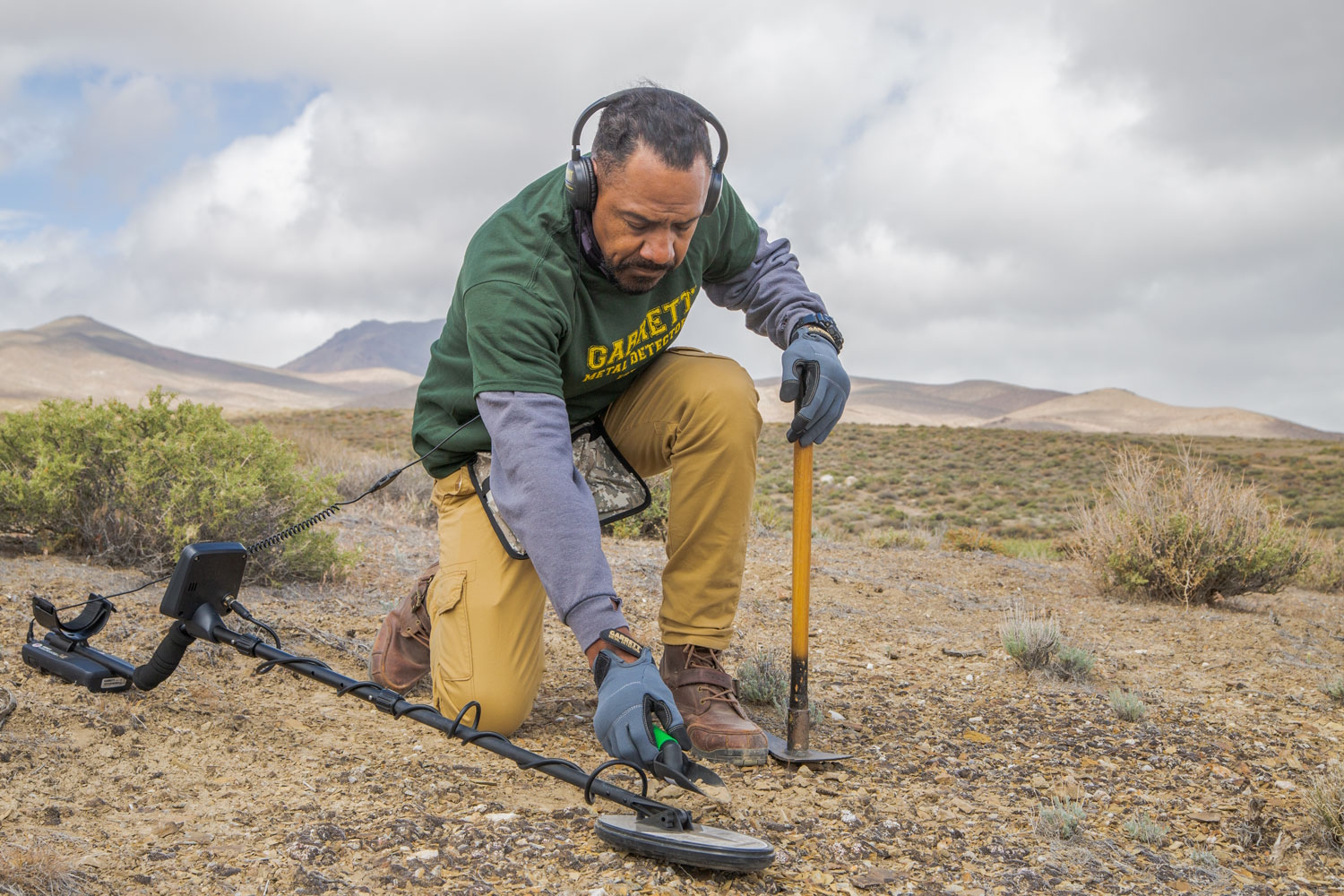Metal detecting is a practice that combines innovative technology with the thrill of discovery. The question of whether metal detectors can effectively detect gold is a common consideration for many people interested in metal detection. From hobbyists searching the beach to prospectors navigating different terrains, these devices uncover many hidden treasures.
Finding gold with a metal detector is rooted in understanding the science behind these devices. Metal detectors are excellent tools for uncovering hidden treasures and historical artifacts. They operate on principles that allow them to locate various types of metals beneath the ground’s surface, offering a glimpse into what lies below the user’s view.
A metal detector’s ability to find gold involves several factors including the technology used, the conditions of the terrain, the sensitivity and discrimination settings, and the specific characteristics of gold as a metal. To appreciate their ability to find gold, it’s important to understand the basics of how these devices work and what sets them apart from other types of metal detectors.
Understanding Metal Detectors
Every metal detector uses a principle called electromagnetism. These devices transmit an electromagnetic field through a coil. When the field encounters a metal object, the detector picks up its magnetic field and signals to the user that it has detected an object.
Another key aspect of metal detectors is their ability to detect all types of metals: ferrous and non-ferrous. Ferrous metals are magnetic and are found in items like nails, screws, iron, and aluminum objects. Non-ferrous metals like gold, silver, bronze, and coins aren’t magnetic. High-quality metal detectors have different program selections and adjustable sensitivity settings based on the types of targets you are seeking (coins for example).

Advanced Detection Technologies
Two common types of technology used in gold detectors are very low frequency (VLF) and pulse induction (PI).
- VLF Detectors: VLF metal detectors like the Garrett AT Max and AT Pro can be used for detecting gold items. These devices use two coils to transmit and receive. They are effective on shallow and small targets as long as the device is ground-balanced and stabilized. Their sensitivity to smaller objects makes them suitable for finding small gold nuggets.
- Pulse Induction Detectors: PI detectors like the Garrett Axiom use multiple pulse signals to help overcome challenging terrain. These devices are effective in highly mineralized environments and at greater depths for finding large nuggets and small pickers.
Metal Detection and Gold
Gold detection is influenced by various factors including the detector’s technology, its program selection, sensitivity levels, and environmental conditions. Since smaller size nuggets are more common to find, prospectors should use a metal detector with good sensitivity adjustments and the ability to operate at different programs.
Key Factors in Gold Detection
Several factors determine a metal detector’s effectiveness in finding gold:
- Higher Operating Frequency: VLF detectors operating at a higher frequency are more sensitive to mid-conductivity metals, such as tiny gold nuggets and other tiny objects.
- Maximum Depth: Gold metal detectors can balance the mineralized soil, which improves detection depth on small nuggets. The maximum depth depends on the frequency, ground conditions, and size of the target.
- Ground Conditions: The mineralization of the soil affects a detector’s performance. PI metal detectors operate in the most extreme mineralized soils and salt water. Detectors with an automated ground balance system help the user operate in these conditions with a more stabilized performance.
When gold prospecting, there is one device that stands out: the Garrett Goldmaster 24k. This gold detector is super sensitive, has a 48 kHz frequency power, and includes 10 sensitivity levels that ensure excellent detection of this metal. No matter what type of environment you’re navigating, you can employ certain types of discrimination to focus more on gold and enhance your metal-detecting experience.
Gold Detection Applications
Some metal detectors come with different modes, such as all-metal, custom, coins, and zero, to optimize the search for specific types of metal. The all-metal mode might be used to detect a wide range of metal objects, while more specialized modes are fine-tuned to detect gold. Someone using a metal detector will set their device with 1) program selection to show they are looking for gold and 2) sensitivity level that focuses on certain target sizes.
For those searching for gold in wet environments like beaches or streams, a waterproof metal detector is ideal. Several Garrett detectors are submersible to 10 feet underwater, enhancing the likelihood of discovering gold in shallow water. These detectors resist corrosion and ensure that moisture doesn’t compromise their functionality.
Tips for Finding Gold Nuggets and Small Targets
The search coil is an important component when detecting gold. A small mono coil might be more effective for locating small gold coins in shallow ground due to its greater sensitivity. However, these smaller coils don’t cover as much ground or search as deeply as larger coils. It’s also important to focus on pure gold detection. Understand the specific sensitivity and discrimination settings for detecting gold, and think about the best environments for improving detection accuracy.
Small nuggets and gold deposits can be missed if the metal detector isn’t used properly. Take the time to understand the environment and the capabilities of your metal detector before beginning your journey. It’s helpful to reference user guides and manuals for your metal detector so you are confident with adjusting its settings before a search.
Garrett Metal Detectors’ Quality and Excellence
Garrett is a leader in the field of gold prospecting, ensuring that every search is as efficient and successful as possible. All our metal detectors are precise and cater to experienced gold prospectors and beginner users. A few that stand out in the realm of gold hunting include the Goldmaster 24k, the Axiom, and the AT metal detectors. These devices are fine-tuned instruments that offer the sensitivity required to detect small nuggets and pieces of gold. With a focus on a user-friendly interface and lightweight design, our detectors are built for comfort and ease of use. By comparing the benefits and features of these models, users can choose a detector that best suits their specific needs and environments.
In the journey to finding objects like gold rings and coins, having the right equipment is crucial. Garrett’s detectors can detect all types of metals, enhancing the overall experience of prospecting. Whether you’re a beginner or an experienced user looking for a reliable tool, purchase one of the best metal detectors for gold from Garrett that uncovers many hidden treasures.




